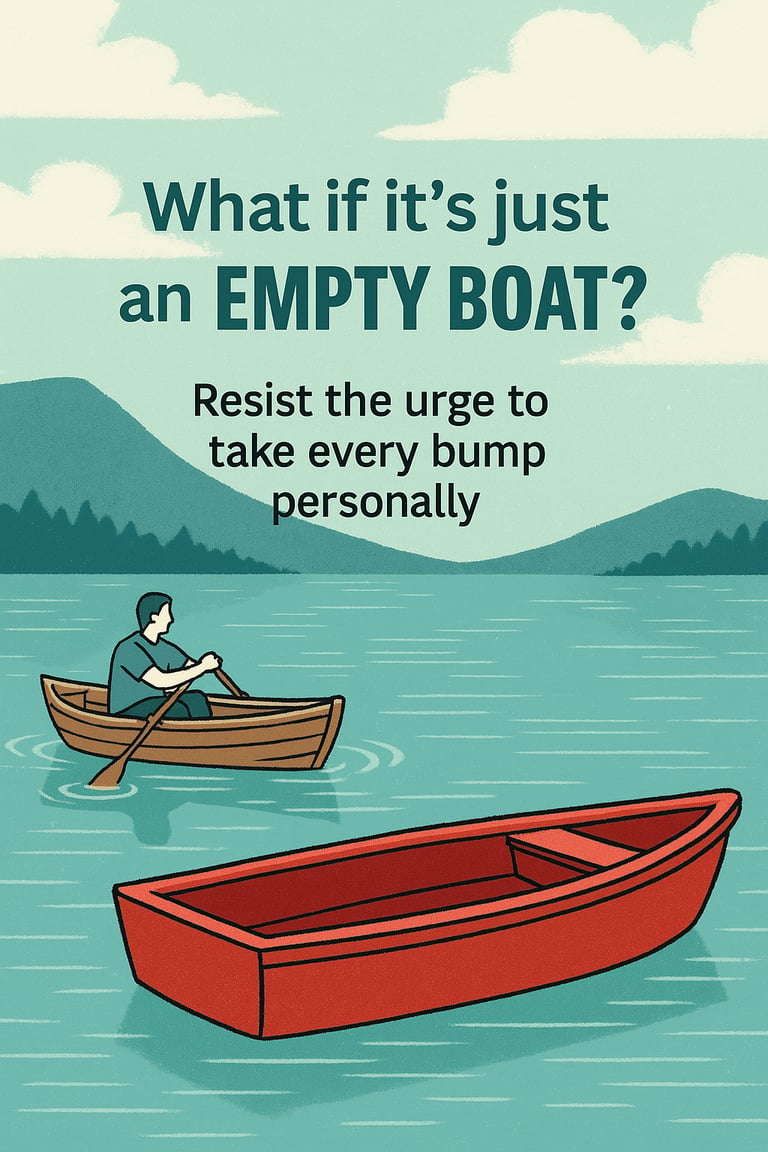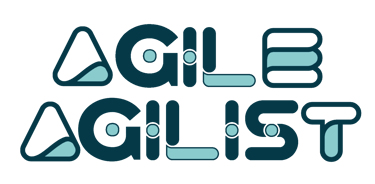What If That Obstacle… Was Just an Empty Boat?
In digital transformation, we often encounter resistance, delays, or shifting priorities — and the instinct is to assign blame.
Mark Saymen
7/11/20251 min read


The Empty Boat Effect: A Powerful Metaphor for Leading Through Transformation
The Empty Boat Effect is a concept from Zhuangzi, an ancient Daoist philosopher. It tells the story of a person rowing across a lake when another boat suddenly collides with theirs. If the boat is empty, the rower shrugs and adjusts course. But if there’s a person in the boat, anger arises — Why weren’t they paying attention?!
The teaching: It’s not the event that causes anger, but the ego’s need to assign blame and identity.
The boat was the same. The reaction changes only because of the perceived intent.
🧠 Reflection: What Does This Have to Do With Digital Transformation?
A lot.
In transformation efforts — especially digital — friction is constant:
Resistance from teams
Missed milestones
Shifting priorities
Conflicting expectations
And often, leaders react emotionally, assigning blame:
“They don’t get it.”
“They’re resisting me.”
“This department is blocking progress.”
But much like the empty boat, most of these collisions are not personal. They’re systemic.
🔄 Applying the Empty Boat Mindset to Executive Coaching & Change Leadership
As a coach, one of the most powerful shifts you can create in a leader is to help them:
Let go of reactive ego
See resistance as information, not opposition
Respond to systems, not just people
Imagine if every time an initiative stalls or a stakeholder pulls back, the leader asks:
“What’s in the system that’s creating this behavior?”
“What assumptions am I making about intent?”
This is the Empty Boat mindset:
It cultivates clarity over defensiveness.
It replaces judgment with curiosity.
It reduces friction in high-stakes transformations.
📈 Leaders Who Embrace This Lead More Effectively
Research in adaptive leadership and systems thinking (e.g., Heifetz, Senge, Kahane) backs this:
Leaders who can depersonalize resistance drive more sustainable change.
Those who treat “friction” as feedback instead of failure build stronger coalitions.
Executive coaches who use metaphors like the Empty Boat increase emotional agility and decision clarity in their clients.
🧭 Final Thought
Not every collision in transformation is an attack.
Sometimes it’s just an empty boat, drifting on a lake of complexity.
Great leaders — and great coaches — learn to steer with awareness, not ego.
